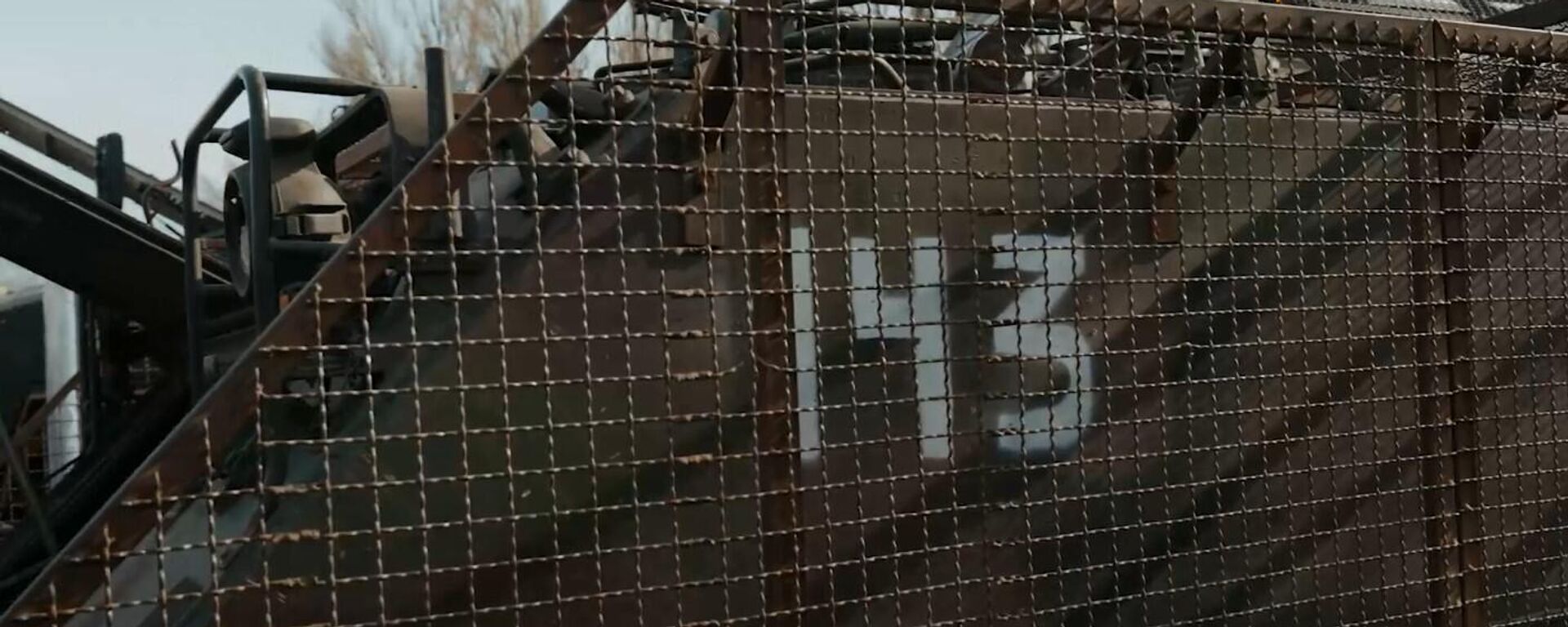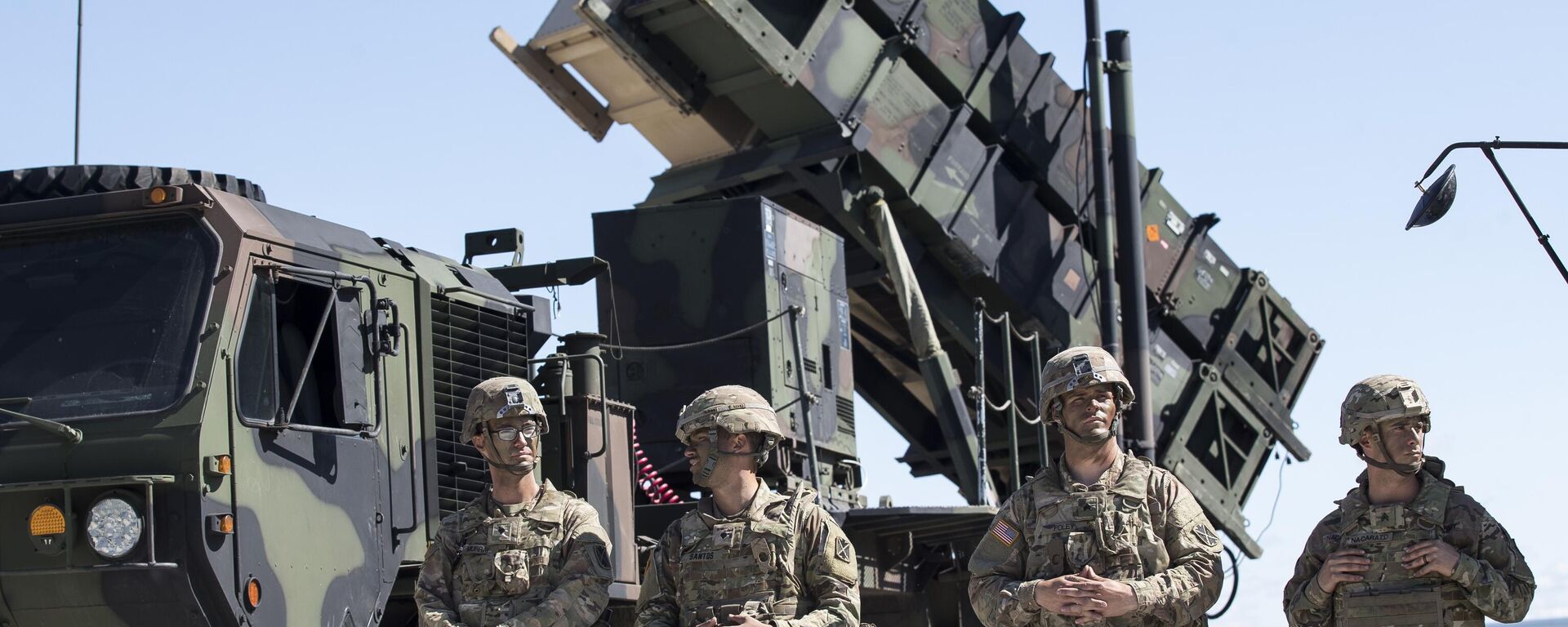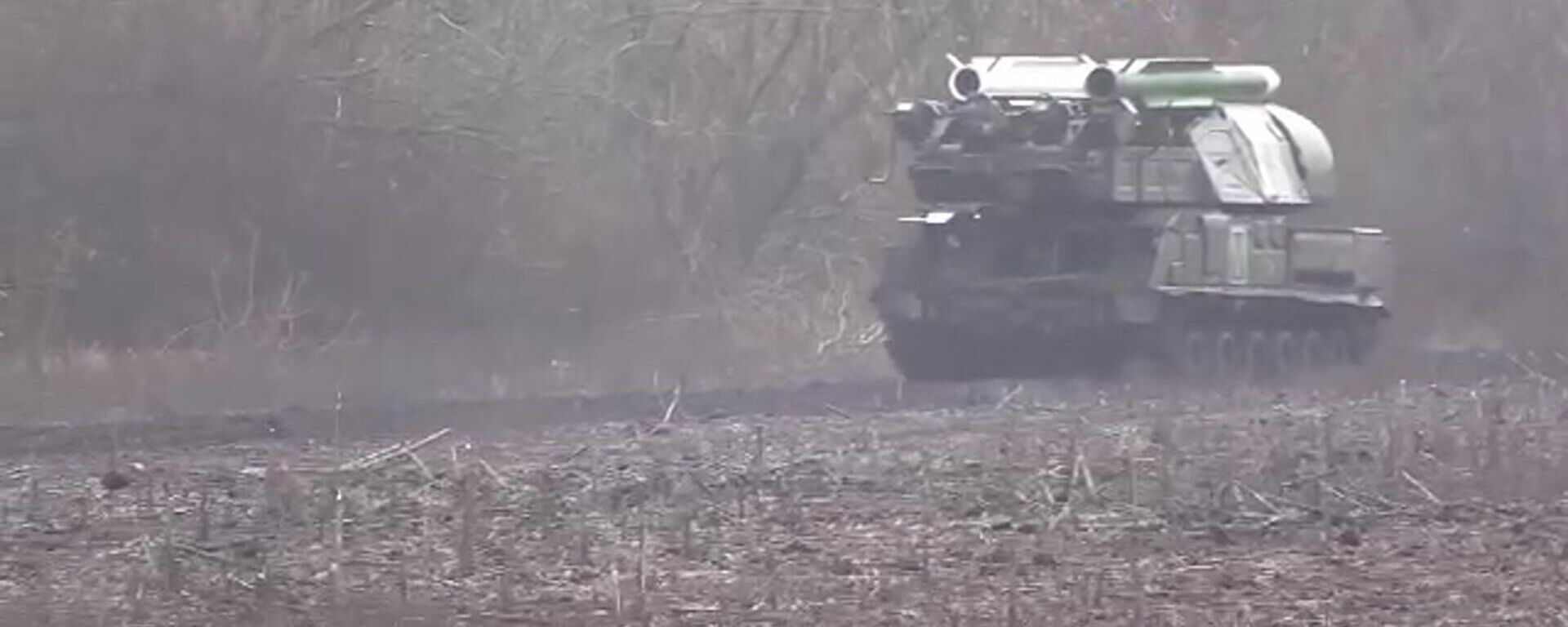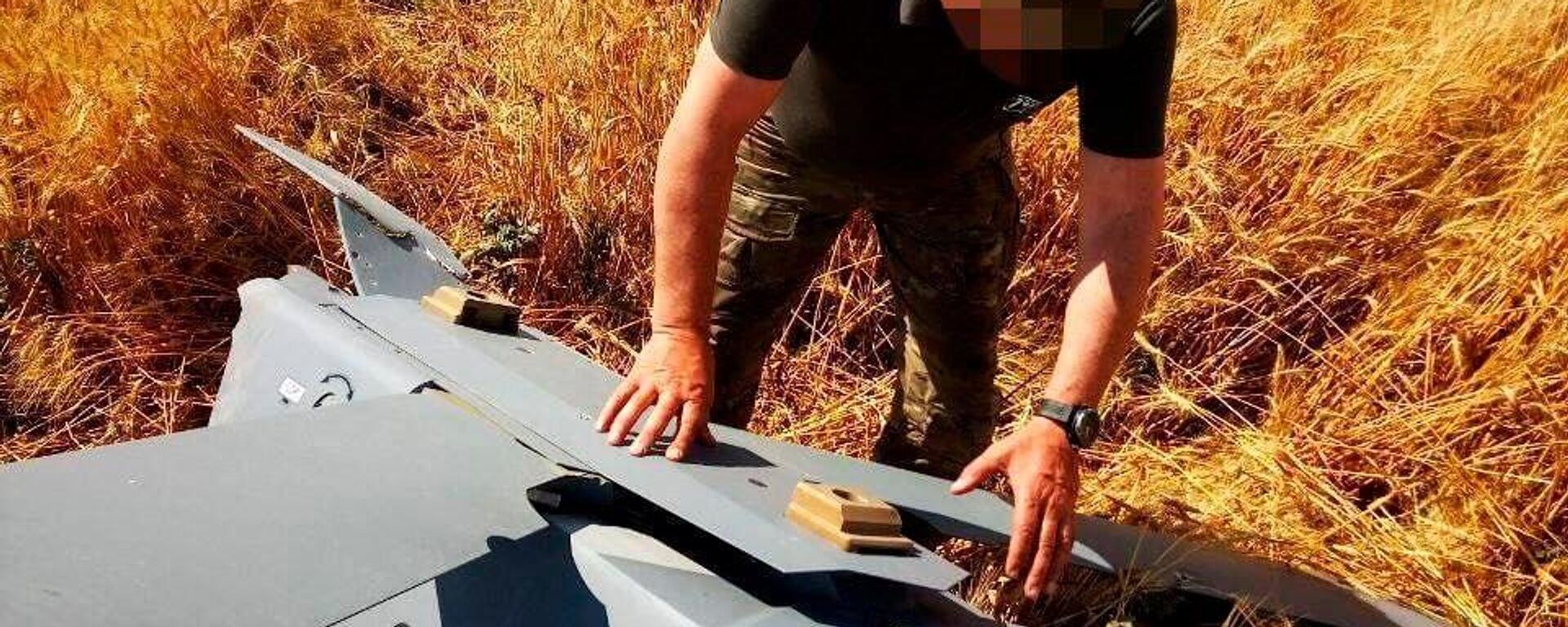Abrams, HIMARS, NASAMS and IRIS-Ts: List of Pricey NATO Weapons Russia Has Destroyed in Ukraine

© Photo : Screenshot / Russian Defense Ministry
Subscribe
NATO has sent $125 billion-worth of its “best in the world” military equipment to Ukraine over the past two years to fuel the proxy war against Russia, only to see much of it smashed on the battlefield, or worse, captured. Sputnik lists off the most sophisticated and costly NATO systems Russia has destroyed to date, with the evidence to prove it.
Ukrainian President Volodymyr Zelensky blasted Kiev’s Western partners over the weekend, saying the holdup in the delivery of new weapons assistance is “unacceptable” and won’t soon be forgotten.
NATO countries, perhaps wary at some intuitive level of the reputational damage their equipment has taken over the past two years of fighting, have hesitated to further ramp up assistance. Commitments of some $125+ billion in arms aid delivered to Kiev between 2022 and 2024 have shrunken dramatically to mere billions so far in 2024, with US lawmakers holding up $61 billion in support as Congress debates more pressing issues, while America’s allies offers of assistance prove underwhelming, especially compared to support sent previously.
Western Arms Destroyed in Ukraine
The lull in aid deliveries provides an opportunity to reflect on some of the sophisticated, high tech, and costly weapons already sent to Kiev, tens of billions of dollars-worth of which have now been turned into scrap metal by the Russian military.
NATO’s Main Battle Tanks: The M1 Abrams joined the growing list of heavy NATO armor destroyed in Ukraine last week, with the first of 31 $10 million+ apiece MBTs knocked out near the Donetsk suburb of Avdeyevka, the fortified Ukrainian stronghold which Russian forces managed to crack late last month.
Before the Abrams, Russian tankers, pilots and drone operators destroyed British Challenger 2s delivered to Kiev, with the $5.3 million apiece tanks starting to get knocked out almost immediately after being thrown into the conflict last September, shattering the British armor’s much-vaunted reputation as an ‘invincible’ tank.
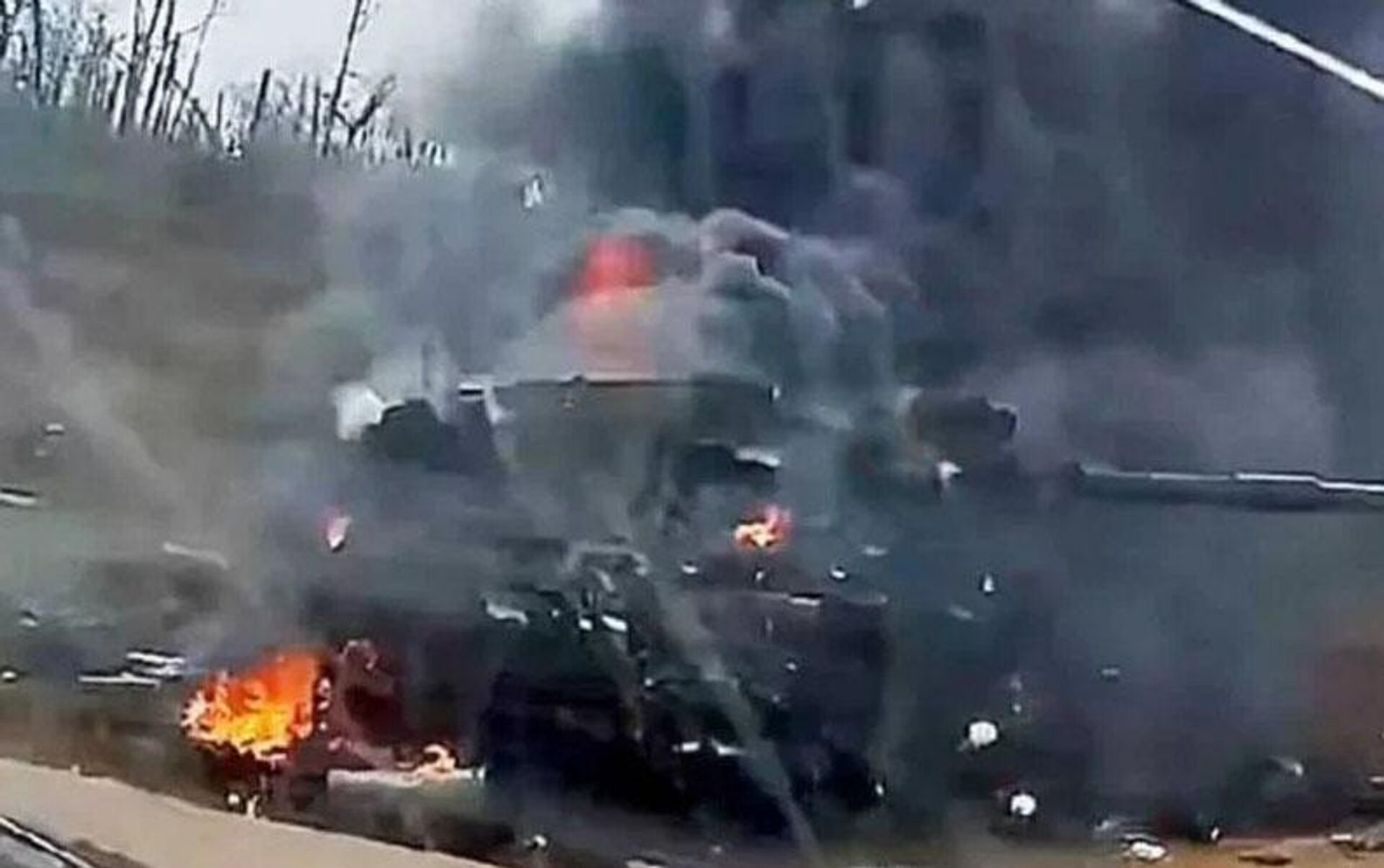
Destroyed British Challenger 2 tank in the area of the Russian special operation. Screenshot from video.
© Photo : Voenndelo/Telegram
Western MBTs began to be destroyed in Ukraine en masse last summer, with dozens of Leopard 1 and 2s eliminated during Ukrainian head-on assaults against heavily fortified Russian positions in Zaporozhye and the Donbass. Last November, US media reported that upwards of a quarter of Kiev’s inventory of Leopard 2s had been “written off” in the space of a week of heavy fighting against Russian forces. The German heavy armored "cats" cost between $5-$6.25 million apiece, depending on upgrades made to the base model.
© Sputnik
Other Armored Vehicles: NATO-built armored vehicles ranging from armored personnel carriers to infantry fighting vehicles sent to Ukraine by the thousands and destroyed by the hundreds are almost too extensive to list. Still, some of the most prominent examples include the M113 APC, delivered by a coalition of nearly a dozen NATO countries and priced at between $100,000-$200,000 apiece. Bradley IFVs, 190 of which were sent by the US and go for between $3.3-$4 million each, are another. Russian forces showed off a fully operational M113 fitted out with customized drone and RPG defenses captured intact in Avdeyevka on Sunday, and are known to have captured several trophy Bradleys, destroying scores more in battles going back to the summer of 2023.
Heavy Air and Missile Defense Systems: In April 2023, the first American-made Patriot missile system arrived in Ukraine. The decision to send the $1.1 billion apiece system was a risky one, with Russia warning long before the Patriot’s deployment that it would strike and destroy the sophisticated piece of Raytheon hardware as soon as possible. Sure enough, not even a month after the Patriot’s deployment, the Russian military announced that it had destroyed a Patriot system in Kiev. Ukrainian officials denied this information, but US officials later confirmed “damage” to the air defense system at the hands of a Russian barrage which reportedly included the use of Kinzhal hypersonic missiles.
Ukraine was provided a total of three complete Patriot batteries (plus four additional launchers) last year by Germany, the US and the Netherlands, along with hundreds of interceptor missiles (known to be priced at between $1 and $6 million each, respectively). The systems’ current status is unknown, but Ukrainian media report on precision Russian missile strikes getting through local air defenses on almost a daily basis.
The Patriot may be the most costly air defense system deployed to Kiev, but isn’t the only one. In January, the Russian MoD said a strike had destroyed a European-made SAMP-T extended range air defense system (reported price tag: $445 million apiece for the launcher, and $2 million per Aster-30 interceptor missile). France’s Defense Ministry said they “could not confirm” information about the air defense system’s elimination, and “warned about Russia’s attempts to spread fakes.” No mention of any additional Aster-30 interceptors was made in the French Defense Ministry’s recent accounting of weapons sent to Kiev, with the item listed simply as “confidential.”
Other SAMs: Last week, media released footage of the destruction of a NASAMS short-to-medium-range air defense system in a Russian strike. A coalition of countries including Belgium, Canada, Lithuania, the Netherlands, Norway, Sweden, the UK and the US was involved in the delivery of launchers and missiles for the Norwegian-made SAM.
The costs associated with the $406 million apiece air defense system can add up pretty quickly, with one US delivery announced last May providing $285 million for support equipment including an AN/MPQ-64F1 Sentinel radar system, a fire distribution center, canister launchers, secure communications systems, GPS receivers, code loaders, cables, tool kits, test and support equipment, prime movers, generators, technical documentation, spare parts and technical support. Russia is also known to have successfully targeted the IRIS-T, a European-manufactured short-range SAM system ($152 million per battery, $430,000 for a single missile), with Kiev known to have resorted to building decoys of the system to keep the real ones remaining safe.
🔝 26 Feb for the Russian Army:
— Russian Embassy in South Africa 🇷🇺 (@EmbassyofRussia) February 27, 2024
✔️ First M1 Abrams tank destroyed;
✔️ Norwegian NASAMS launcher identified and eliminated;
✔️ First Bradley IFV got captured fully operational;
✔️ First Archer howitzer taken out. pic.twitter.com/zQ7KiFPyLe
Speaking of radars, Russia has targeted NATO standard radar systems by the dozens, destroying multiple AN/TPQ-36 firefinder radar systems in Kherson and Donetsk, as well as Ukraine’s sole Skyguard II radar (delivered by Italy). The radar and support equipment targeted by Russian missile, drone and air strikes comes from a variety of eras and manufacturers, with a single AN/TRQ-36 priced at over $1.5 million.
Heavy Artillery: Russian pilots, artillerymen and drone operators have spent much of the past two years searching out the deadly towed, road mobile and/or tracked artillery and rocket artillery systems delivered to Ukraine by the West, destroying dozens of US M777 155mm howitzers ($3.7 million apiece), European-made FH70 155 mm howitzers (which cost about $600,000 each), WWII-vintage M101 howitzers (105 mm, current price unknown), the DANA, a Czech-made self-propelled 155 mm gun ($1.7 million apiece), the Zuzana, a Slovak-made 155 mm gun howitzer ($6.2 million each), French-made CAESAR 155 mm howitzers ($7 million for one), German PzH 2000 155mm guns ($20 million each), US-made M109 Paladin 155 mm howitzers ($18.75 million apiece), and Swedish Archer 155 mm mobile artillery ($10.4 million each).
© Sputnik
Mobile Rocket Artillery: Special attention has been paid by Russian forces hunting for tracked M270 and truck-based M142 HIMARS multiple launch rocket systems – the deadly shoot and scoot rocket artillery systems which are difficult to track down and destroy due to their high mobility. Priced between $4.3 million and $4.6 million apiece, with rockets going for up to $100,000 each, the M142 and M270 are often paired with Ukraine’s Soviet-era artillery systems to make detection and targeting more difficult for Russian forces. The MoD reported last month that it had destroyed 70 HIMARS rockets and two launchers in a single precision strike on a weapons depot at the ArcelorMittal steelworks in Krivoy Rog, central Ukraine, with 35 HIMARS rockets reportedly shot down over the period between February 24 and March 1.
Cruise Missiles: NATO has sent an array of sophisticated missile systems to Ukraine, from US Harpoon coastal defense missiles to target the Russian Black Sea Fleet (price: $1.4 million apiece), to long-range French/British SCALP EG/Storm Shadow cruise missiles to attack areas deep in the Russian hinterland ($2.5 million each). In addition to shooting the projectiles down, Russia has occasionally managed to capture them. Last July, Russian troops were filmed snagging an intact Storm Shadow and sending it off for analysis after the missile had been shot down by air defenses.
Eisenhower’s Prescient Warning
The jaw-dropping prices of many of the NATO weapons systems listed above brings to mind a quote from a speech by Dwight D. Eisenhower, the former commander of Western Allied Forces during World War II and the 34th president of the United States.
“Every gun that is made, every warship launched, every rocket fired signifies in the final sense, a theft from those who hunger and are not fed, those who are cold and are not clothed. This world in arms is not spending money alone. It is spending the sweat of its laborers, the genius of its scientists, the hopes of its children…This is not a way of life at all in any true sense. Under the clouds of war, it is humanity hanging on a cross of iron,” Eisenhower said in a speech in April 1953, eight years before his more famous farewell address warning about the power of the military-industrial complex.
Sadly, Eisenhower’s advice hasn’t been heeded by America and NATO’s current crop of leaders, threatening the West, and the world, with disastrous consequences.

